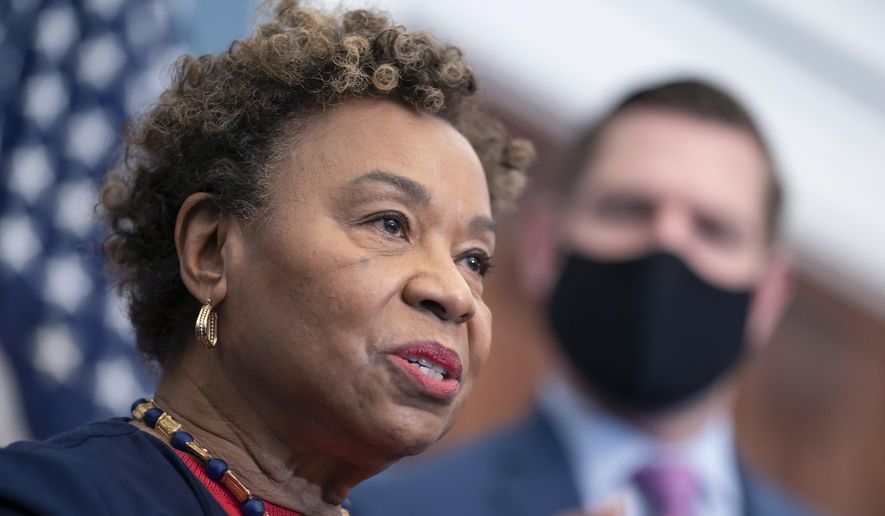California Rep. Barbara Lee thinks U.S. minimum-wage workers should earn a six-figure income, a proposal made Sunday evening during a Democratic Senate candidate forum as she sought to draw a contrast with her opponents in a tightly bunched field.
Ms. Lee, who’s running against fellow Democratic Reps. Adam B. Schiff and Katie Porter for the seat of the late Sen. Dianne Feinstein, said the federal minimum wage should be $50 per hour — or $104,000 per year.
The current federal minimum wage is $7.25 per hour, or roughly $15,000 per year. California’s minimum wage is one of the highest in the nation at $15.50 per hour, or about $32,200 annually, but will increase to $16 next year. The state is raising its hourly minimum wage to $20 next year for fast food workers, or $41,600 per year.
Mr. Schiff said the federal minimum wage, which has not increased since 2009, should be $25 per hour. Ms. Porter said $20 at the federal level and $25 in California, in addition to automatic increases to match the inflation rate.
Ms. Lee’s campaign did not respond to a request for comment or for clarification on whether her $50 proposal, which would undoubtedly exacerbate inflation, was serious.
Her response elicited a mixture of laughs and applause from the audience. It came after a forum moderator pressed for a specific dollar figure when the three candidates gave lengthier responses.
All three candidates have endorsed legislation from Democratic Rep. Bobby Scott of Virginia to raise the federal rate to $17 per hour by 2028.
“It’s not sufficient in most parts of the country, and I’d like to see it even higher,” Mr. Schiff said. “We have to provide people a livable wage. Not just a minimum wage, but a livable wage so that they can provide for themselves and can have a roof over their head.”
Ms. Lee said $17 to $20 per hour “should be the floor” and that $25 represents a “bare minimum.”
“That’s unacceptable anywhere in the United States of America, especially here in California,” Ms. Lee said. “If we’re going to only stop at $25, $30 an hour, then we have to have the federal government make sure that there are resources for affordable housing.”
Ms. Porter, who frequently targets corporate profits and greed as the crux for Americans’ economic struggles, said Washington “is consistently putting the interests of big corporations ahead of the interests of workers and families.”
“I want to absolutely tie [the minimum wage] to inflation,” she said. “We can’t keep trying to backfill 50 cents, $1, $2 each time on the picket line for your families for what Washington has failed to do, which is to reset our economy and make sure the workers who create the value are getting paid what they deserve.”
Recent polls show a plurality of likely primary voters remain undecided, however they have Mr. Schiff and Ms. Porter both leading Ms. Lee by double digits.
A survey from the Berkeley Institute of Government Studies published last month had Mr. Schiff leading at 20%, Ms. Porter at 17%, Ms. Lee at 7% and 34% undecided.
The top two vote-getters in California primaries for federal office move on to the general election, regardless of party. The two leading Republican candidates tied or slightly beat out Ms. Lee in the Berkeley poll: James Bradley received 10% and Eric Early received 7%.
California Democratic Sen. Laphonza Butler, who was appointed by Gov. Gavin Newsom to serve the remainder of Feinstein’s term, did not participate in the Democratic candidate forum. She has not said publicly whether she’ll seek to run for a full term in November 2024.
• Ramsey Touchberry can be reached at rtouchberry@washingtontimes.com.




Please read our comment policy before commenting.